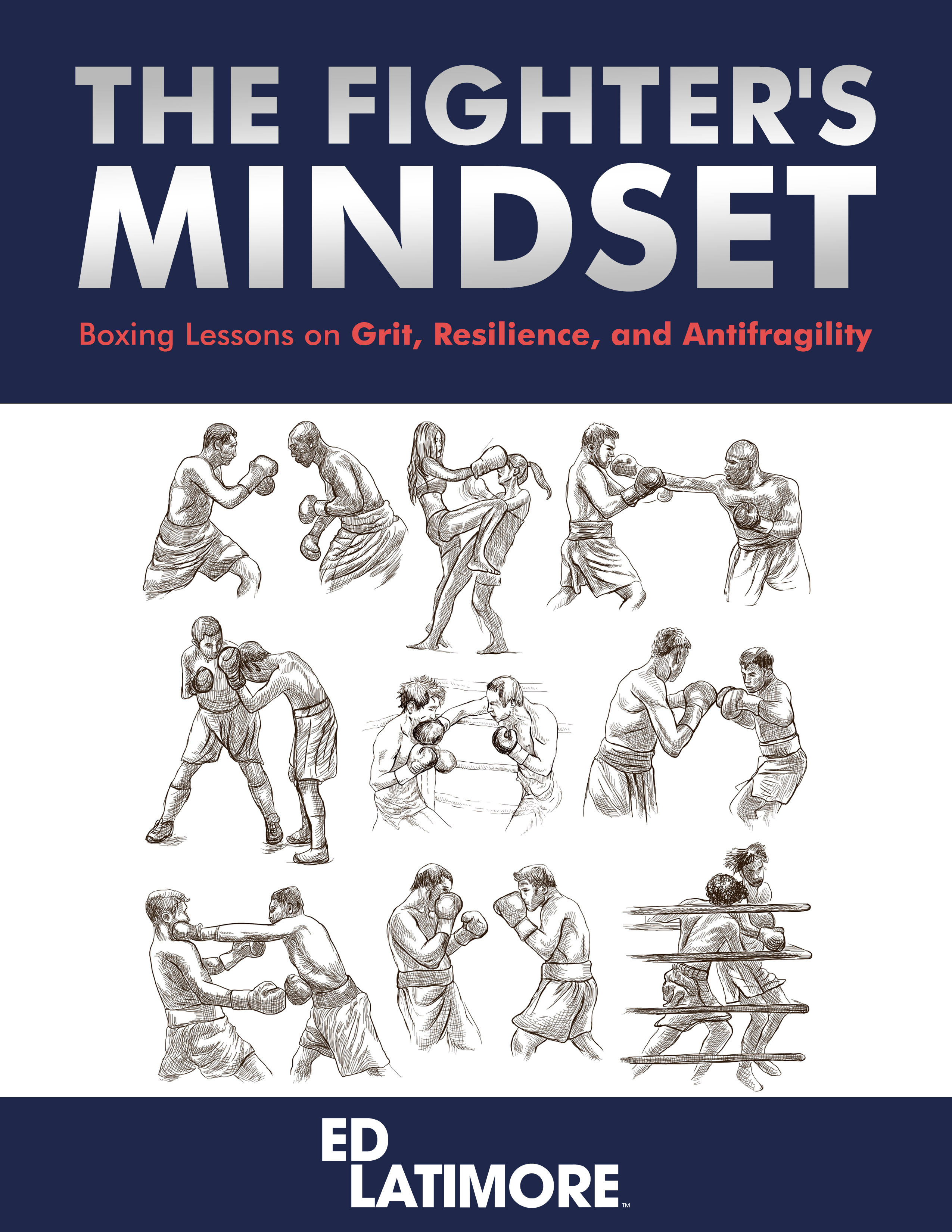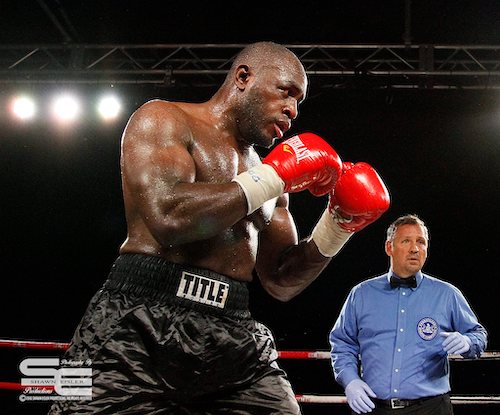Everything about boxing is difficult.
If you want to learn to box this is the first thing you should know.
It’s hard.
ESPN once ranked it as the number 1 toughest sport to train above hockey, football, and other martial arts.1
It’s not like Brazilian jiu-jitsu where there are hundreds of moves to master. In fact, you can learn the fundamentals of boxing in a short time while jiu-jitsu takes at least a decade to reach black-belt status.
There also aren’t any belts to tell you when you’ve gotten better. It’s entirely up to how you perform in the ring.
The difficulty of learning to box is the part you can’t see unless you know what you’re looking for.
Why is boxing hard to learn?
The fundamental moves that make up boxing aren’t complex. Using them in the face of competition intelligently and effectively is what makes boxing a sweet science.
Most people see boxing as professional punching. It’s a knockout competition.
Those with a bit more understanding can see that a skilled boxer knows how to…
- cut off the ring
- measure distance
- adjust their styles to stay one step ahead of their opponent
Unfortunately, because everyone can throw a punch, you see guys squaring up in the streets just to be embarrassed after getting knocked out. Boxing is a martial art just like karate or capoeira or judo.
I started boxing at 22. By the end of my career, I had 13 wins, 1 loss, and 1 draw. Boxing has taught me lessons about life I never would have learned anywhere else. So when anyone asks me if they should start boxing my answer is always the same…
Yes.
Doing something because it’s hard is not a reason not to do it.
But here’s what you have to bring to the table to be successful…
A definite purpose
Having a driving force behind your actions makes it more likely you’ll follow through when you face a challenge. But that’s not what I mean by purpose here.
Are you fighting for fitness or to follow a professional boxing track? Because fighting to get in shape and fighting for money are two very different endeavors.
If you want to use it to workout, that’s great. Learning to throw punches with footwork is a great cardio workout. Learning boxing for confidence and self-defense is also a good reason but I don’t recommend going around looking for fights.
There is no shame if you decide the sport is too difficult for you. Combat sports like MMA, muay thai, and boxing demand so much from you and give you so little in return. But it will change you if you let it.
When I first started fighting, I wasn’t sure what I wanted to do, so I did everything. For one year I trained MMA, Boxing, Judo, and Brazilian Jiu-jitsu. I got the most enjoyment out of boxing.
A dark side
I started boxing because the mother of the girl I was dating gave me a bit of real tough love. I had already failed out of college once, and I was complaining about how ridiculous college was to everyone who would listen—including her. She just happened to be a college professor.
So one day she said to me that if college is so pointless, show her what I’d done with my life over the past 4 years besides show up and eat her food—then she kicked me out. That made me shed a little man tear, but she was right.
I was a loser.
So I decided to try boxing to build a little sweat equity on this planet in case I died, and the only thing people knew of me is that I liked to drink and I worked at Starbucks.
Tim Grover, Micheal Jordan and Kobe Bryant’s personal trainer, shared his concept of ‘the darkside’ in his book _Relentless. _He said all great men had a darkside they had to harness to be great. For Micheal and Kobe it was their relentless need to compete and be better than the next guy.
For me it was my desire to prove that I was more than a drunk.
Your darkside may be a chip on your shoulder, or a sense of entitlement. A darkside gives you fuel to push through challenges. Fuel you’ll need because boxing training will test your capacity to suffer. And suffering is the only way to get past being a beginner and get good.
A mind-body mastery
Learning to coordinate your entire mind and body at a high level to attack someone else who is capable of doing the same thing is the most difficult part of learning to box. The training and the fight are both difficult, and will push you to be a strong competitor.
It’s also very humbling and forces you to face real fear. You can work hard and still be overpowered by a stronger, more skilled man than you in a boxing match. I even chewed mastic gum(check out my review and where to get mastic gum here) to make myself harder to knock out.
Boxing training changed my mindset in a major way.
Firstly, I started to realize that most people are soft. But the biggest changes to my mindset came after I had some success. I began to believe that I could do anything. It gave me the confidence to learn Spanish and pursue a degree in Physics, despite having been a failing math student.
A commitment
Those who box, love boxing. If you are in any kind of combat sport, you have to love it to do it. And you may not love it until you start to see some success either in the gym or after a few amateur fights. Like anything, if you don’t make a commitment to show up to your training sessions, you’ll never be any good.
You may not be looking to go to the olympics or even following the professional boxing track but you still want to make sure you can devote the necessary time to it.
I recommend being able to devote at least 15 hours a week to start—that’s a little more than 2 hours per day.
A commitment to my boxing training is how I developed a religious workout practice I keep to this day.
A dissatisfaction with how your life looks
Finally, boxing is one fight sport where the players all have consistent background stories—a hard life.
For example…
Manny Pacquiao grew up so poor his father ‘allegedly’ ate his dog.
Sugar Ray Leonard had been brutally sexually abused.
And Mike Tyson’s mom was a prostitute that fed him drugs from a very young age.
If you’ve followed me for a while, you know that I grew up in the hood around drugs and senseless violence. When I put on the boxing gloves I felt like I was doing more than just passing the time. I was training my body and mind to perhaps do something great one day. I became focused on one goal. That probably saved me because at different parts of my life, I was forced to choose between boxing and bullshit, and almost every time, I chose boxing.
You don’t have to have a hard life to be a boxer but you have to want more from your life than you currently have.
Most people coast to a slow quiet decline that happens right after college. Before you know it you’ve thrown out your back or are filling up on prescription drugs.
Learning to box can help you avoid this decline and give you a sense of purpose and direction you wouldn’t have otherwise.
Wrapping up
If you’re a grown man, or soon-to-be one, you need to be working your body physically. Going to the gym is great, adding a sport where you interact with other men is better. It gives you an outlet for that testosterone instead of sitting home watching porn all day. You also learn to face difficulties and hone your confidence while building life skills.
Is boxing hard? Yes, but you should still do it. Here’s what it requires from you:
- A decision to be a pro boxer or box for fitness
- Tapping into your darkside
- Getting your mind and body in sync and facing your fears at the same time
- Committing to showing up
- A fear of the slow decline
Boxing Lessons on Grit, Resilience, and Antifragility
In this e-book, I teach you 20 mindset lessons I learned from my 13-1-1 professional heavyweight boxing career.
Use these to conquer any challenges you face, in the ring or in life.
Learn how to develop the mindset of a fighter, from a fighter, so you can win the battles you face.

References
ESPN. Sport Skills Rankings. https://www.espn.com/espn/page2/sportSkills ↩




